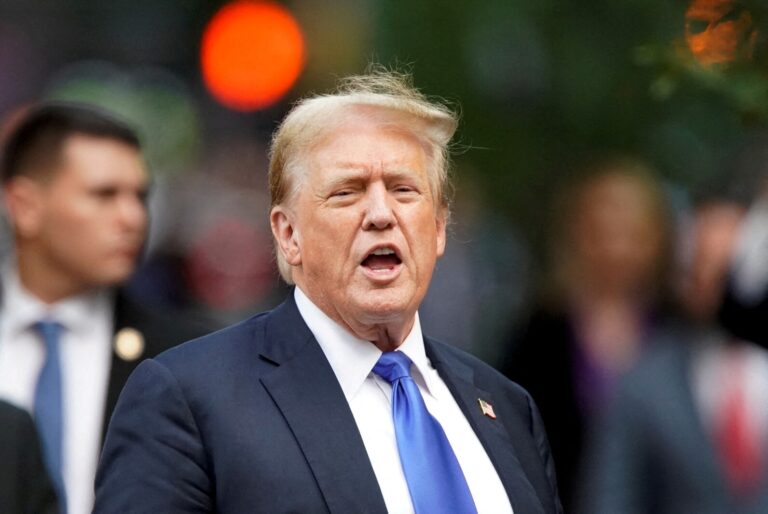“It is out of fear for our democracy,” Justice Sonia Sotomayor concluded in her brilliant dissent in Trump v. United States, “that I dissent.”
She’s right. She’s terribly right.
After reading what happened in the oral arguments, I knew what was coming. The court was looking for a way to carve up the baby, granting former President Donald Trump some form of immunity without turning him into an absolute monarch.
But even I didn’t expect the breadth of Chief Justice John Roberts’s opinion, which almost does that, in effect, with its distinction between official acts, which are “presumptively exempt” from prosecution, and unofficial acts, which are not. As Sotomayor wrote in her dissent, the motives of a president who acts illegally cannot be taken into account; “the class of presidential actions that can be considered ‘unofficial’ is bound to be infinitesimally small.” And it will take forever, in the district court remand, and in the endless appeals that will no doubt follow, for that to be definitively determined. Certainly long enough that it will amount to a get-out-of-jail-free card if Trump is president-elect.
Tribune graphic
Indeed, that’s enough to push back his sentencing on all 34 counts he’s already been convicted of. It didn’t take long for Trump’s lawyers to claim that paying a porn star to keep quiet about her affair with him before he was president (and thus rigging the election) was an “official act” because he wrote the reimbursement check to Michael Cohen while he was in the White House. It’s a ridiculous argument, one that Judge Juan Merchan will hopefully acknowledge, but not so much that he wouldn’t be willing to delay sentencing for another two months. And count on Trump’s lawyers to try to push it back even longer if the judge rejects it.
And don’t make the mistake of thinking this is the result of a “conservative” court simply relying on the intent of the founders. Sotomayor made it clear that they were doing no such thing. “The framers of the Constitution clearly knew how to provide immunity from prosecution,” she wrote. “They provided a qualified immunity for legislators in the Free Speech or Debate Clause[of the Constitution].” But nothing about the president, a point the chief justice simply ignores, just as he ignores the part of the Constitution that says an official impeached and convicted by the Senate “shall nevertheless be liable and subject to impeachment, trial, judgment, and punishment, according to law.” The Impeachment Clause “clearly contemplates that a former president may be subject to criminal prosecution for the same conduct that resulted (or could have resulted) in a judgment of impeachment—including conduct such as ‘corruption,’ which almost by definition involves official acts.”
As for the Founding Fathers, the Chief Justice also ignores Alexander Hamilton’s comment in the Federalist Papers that former presidents should be “subject to prosecution and punishment within the ordinary bounds of the law.” The Founding Fathers were well aware of the power of monarchs and, in Hamilton’s words, distinguished between “the King of Great Britain,” who was “sacred and inviolable,” and the “President of the United States,” who “should be subject to personal punishment.” The majority opinion recognizes no such distinction.
According to Sotomayor, the majority’s approach is clear: “Order Navy Seal Team 6 to assassinate a political rival? Immunized. Stage a military coup to retain power? Immunized. Accept a bribe in exchange for a pardon? Immunized. Immunized, immune, immune.”
Roberts ignores the examples cited by his fellow dissenters as completely as he ignores the originalism that he and his colleagues claim to be guided by.
No, this is not a principled court of justice, but a completely partisan court, and the Chief Justice has failed in his purported mission to protect the legitimacy of the court. This is Bush v. Gore, the decision that has weakened the court more in the opinion polls than any decision in recent history. This is a completely partisan court, doing its best to elect a president by a vote of six to three.
I was once among those who doubted Democratic proposals to change the composition of the Court (also known as “court-packing”) or the length of its terms (also known as “term limits”), because I believed that the Court should be protected from ideological manipulation. That is no longer the case. I am for anything that might shake up a Court that, in total disregard of ethical constraints and the need to maintain the public trust, has itself engaged in ideological manipulation.
This commentary by Susan Estrich is her opinion. You can contact her at sestrich@wctrib.com.
______________________________________________________
This article was written by one of our partner news agencies. Forum Communications Company uses content from agencies such as Reuters, Kaiser Health News, Tribune News Service and others to provide a broader range of information to our readers. More information on the information services used by the FCC here.



